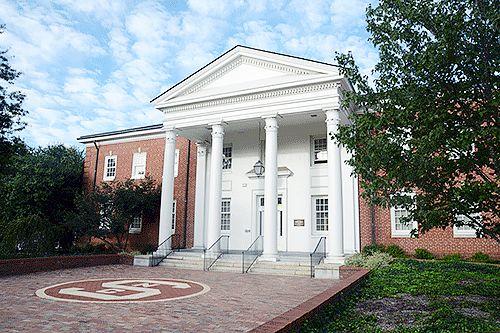In its fifteenth year, the Office for Institutional Equity and Diversity distributed $27,193 worth of diversity mini-grants through its Diversity Mini-Grant Program to eleven faculty and staff project proposals. Out of 28 submissions, the program awarded initiatives that involved supporting the creation of a diverse, inclusive community.
Jamie Pearson, assistant professor of special education, received a mini-grant for her project Students Enhancing FACES [Fostering Advocacy, Communication, Empowerment and Supports for African American Families of Children with Autism]. Pearson, who started the program in 2016 in Chicago, Illinois, is seeking to create a presence of autism support at NC State and enable students to participate in community-based research, especially among underrepresented families.
“This is the first year I’m hoping to get it off the ground here in North Carolina,” Pearson said. “I heard back from some of the participants in Chicago, and they were asking if we were going to be able to do it again. It was exciting that previous participants enjoyed it so much that they wanted to bring it back.”
Pearson plans on using the grant money she received to pay for graduate research assistants.
“Essentially it will support students’ research, so I will be able to pay probably two to three students to help out with the project,” Pearson said. “Once we start the intervention and conducting interviews, we’ll provide childcare for the families who participate. There’s a lot of footwork that we need on the ground, and so most of the grant money will be used to provide the personnel support for the intervention.”
HOLA BUG is another initiative designed by mini-grant recipients Alejandro Del Pozo-Valdivia and Melina Florez-Cuadros, post-doctoral research scholars in entomology and plant pathology. The program uses insects to encourage Hispanic high school students to pursue higher education.
“As entomologists, there is a stereotype,” Del Pozo-Valdivia said. “You have to be nerdy, you have to be from a specific background. We wanted to break down that stereotype. Anyone can be an entomologist. Anyone can do research.”
The pair of investigators, who first met through Florez-Cuadros’ attempts to enlist a partner for the project, intend on reaching out to other established organizations, contacting county schools with high Latino student populations, and conducting surveys of Latino high school students to gather information related to their interest in college, STEM and entomology.
“I would love to get some high school students to join NC State,” Florez-Cuadros said. “That would be the most successful thing from the project.”
Mary Haskett, professor of psychology, began her food and housing security initiative in the fall semester of 2017 with a vision of ensuring that every student at NC State will have access to sufficient food and affordable housing close to campus.
“We know that one aspect of diversity on campus is socioeconomic status, and we know that we have students with varying resources available to them,” Haskett said. “There’s no office on campus specifically making sure that those students are protected and that their educational rights are supported. It’s a group that is invisible. Being hungry and homeless affects your ability to do well in school. So it just made a lot of sense that this would be a good outlet for funding.”
Haskett and her planning team intend to use the grant money to encourage students to complete surveys through monetary incentives, rent space in Talley, and host student focus groups to improve the program.
“One of things we wanted to do was have a community-wide campus conversation,” Haskett said. “We had an early success at the end of last semester. We have a partner on this initiative from the community; she works in the Partnership to End Homelessness in Wake County. She has promised us two apartments for students at a very low rate. If we put all of these efforts together, we really feel like we can make a difference for students.”
Past mini-grant awardees have included projects such as Wolf Tales, Women in Science Speaker Series, African American Family Science and Engineering Day, and the Asian American Leadership Symposium.








